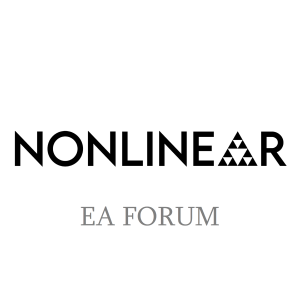
The Nonlinear Library: EA Forum
Education

Welcome to The Nonlinear Library, where we use Text-to-Speech software to convert the best writing from the Rationalist and EA communities into audio. This is: Brian Tomasik on charity, published by Vasco Grilo on January 31, 2024 on The Effective Altruism Forum.This is a linkpost for Brian Tomasik's posts on charity.My Donation RecommendationsBy Brian TomasikFirst published: 2014 Nov 02. Last nontrivial update: 2018 May 02.Note from 2022 Jun 27: The details in this piece are slightly outdated. Maybe I'll update this page at some point, but for now, here's a quick summary of my current views.In terms of maximizing expected suffering reduction over the long-run future, my top recommendation is the Center for Reducing Suffering (CRS), closely followed by the Center on Long-Term Risk (CLR). (I'm an advisor to both of them.) I think both of these organizations do important work, but CRS is more in need of funding currently.CRS and CLR do research and movement building aiming to reduce risks of astronomical suffering in the far future. This kind of work can feel very abstract, and it's difficult to know if your impact is even net good on balance. Personally I prefer to also contribute some of my resources toward efforts that more concretely reduce suffering in the short run, to avoid feeling like I'm possibly wasting my life on excessive speculation.For this reason, I plan to donate my personal wealth over time toward charities that work mainly or exclusively on improving animal welfare. (I prefer welfare improvements over reducing meat consumption because the sign of the latter for wild-animal suffering is unclear.) The Humane Slaughter Association is my current favorite. A decent portion of the charities granted to by the EA Funds Animal Welfare Fund also do high-impact animal welfare work. I donate a bit to Animal Ethics as well.SummaryThis piece describes my views on a few charities. I explain what I like about each charity and what concerns me about it. Currently, my top charity recommendation for someone with values similar to mine is the Foundational Research Institute (an organization that I co-founded and volunteer for).Spreading Google Grants with Caution about CounterfactualsBy Brian TomasikFirst published: 2014 Feb 04. Last nontrivial update: 2016 Nov 09.SummaryIf you find an effective charity, write to them to ask whether they use Google Grants, and if not, suggest they sign up. Google Grants offers the prospect of immense returns for a small amount of labor, although one needs to be careful about not competing with other effective organizations and choosing keywords that draw in new people rather than preaching to the choir.Update (2015 Sep): Having used Google Grants for the last 1.5 years for several organizations, my conclusion is that the value of AdWords is modest. None of my organizations has found via AdWords a major donor or a promising future employee, even though our websites get high traffic volume from ads. Maybe part of the reason is that the best people don't click on ads much? Another reason is that the best people tend to be concentrated in dense social clusters, so that networking can be more effective.The Haste Consideration, RevisitedBy Brian TomasikFirst published: 2013 Feb 03. Last nontrivial update: 2018 Apr 19.SummaryInternal rates of return for charity are high, but they may not be as high as they seem naively. Haste is important, but because long-term growth is logistic rather than exponential, it's less important than has been suggested by some. That said, if artificial general intelligence (AGI) comes soon and exponential growth does not level off too quickly, naive haste may still be roughly appropriate. There are other factors for and against haste that parallel donate-vs.-invest considerations.Restating the summary in simpler language: Movements should saturate or at least show diminishing returns at some point, so that movement building sooner amounts to either j...
More Episodes
Create your
podcast in
minutes
- Full-featured podcast site
- Unlimited storage and bandwidth
- Comprehensive podcast stats
- Distribute to Apple Podcasts, Spotify, and more
- Make money with your podcast
It is Free
- Privacy Policy
- Cookie Policy
- Terms of Use
- Consent Preferences
- Copyright © 2015-2024 Podbean.com






